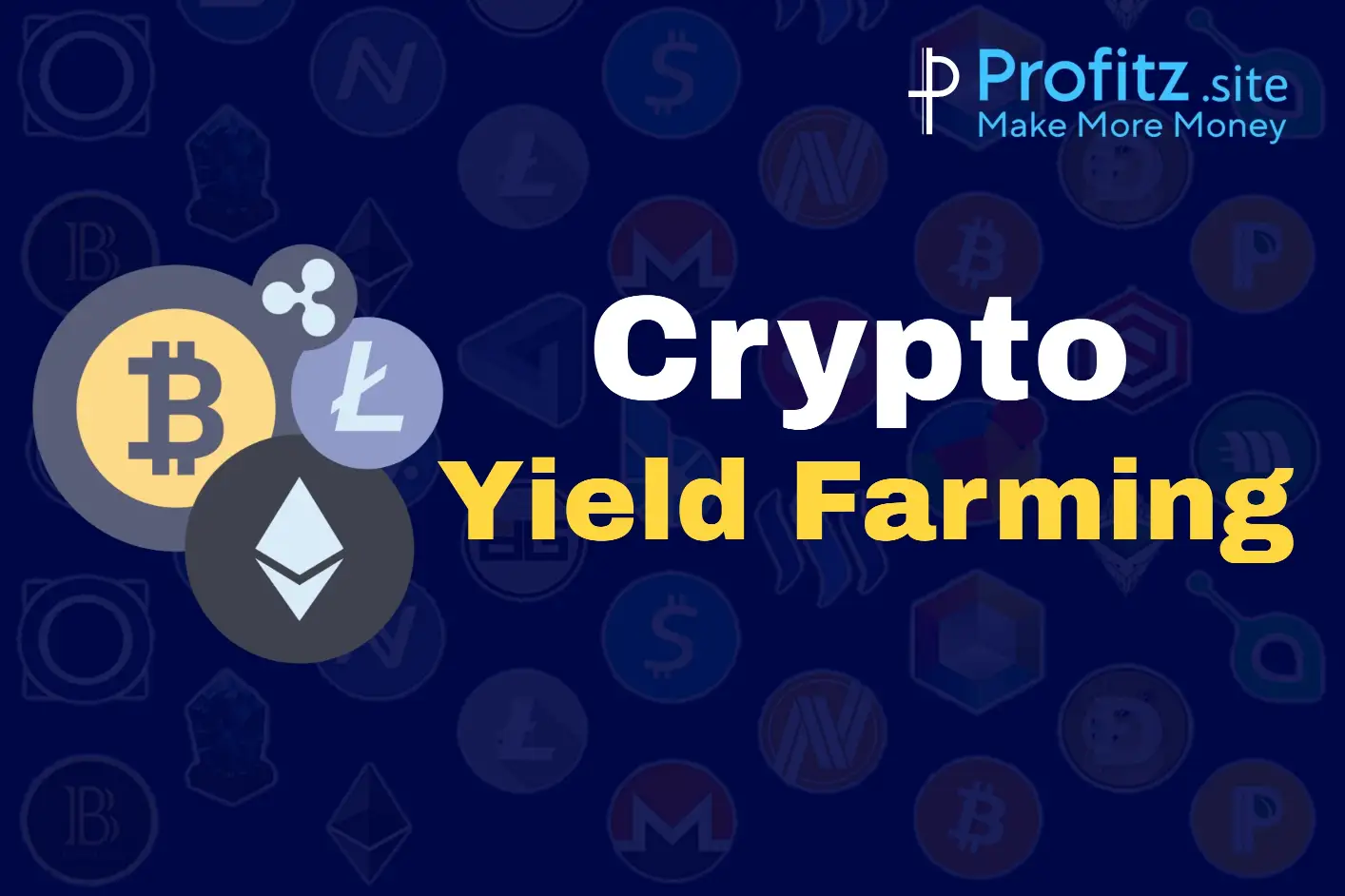In the ever-evolving landscape of the cryptocurrency market, new and innovative financial instruments continue to emerge. One such phenomenon that has gained significant traction in recent years is crypto yield farming. Yield farming represents a revolutionary approach to earning returns on cryptocurrency holdings, leveraging decentralized finance (DeFi) protocols to maximize profits. In this comprehensive guide, we will delve into the intricacies of crypto yield farming, exploring its principles, risks, and potential rewards.
Understanding the Basics
Definition of Yield Farming
At its core, yield farming is a strategy that allows cryptocurrency holders to generate returns by lending or staking their assets within decentralized finance protocols. Participants, often referred to as farmers, engage in liquidity provision or stake their tokens in specific platforms to earn interest, fees, or governance tokens.
Liquidity Provision
A fundamental aspect of yield farming involves providing liquidity to decentralized exchanges or liquidity pools. Liquidity providers deposit their tokens into these pools, facilitating trading and earning a share of the trading fees generated on the platform. Platforms like Uniswap and SushiSwap are prominent examples where users can contribute to liquidity pools.
Staking
Staking is another mechanism within yield farming where users lock up their tokens in smart contracts to support network operations and, in return, receive rewards. These rewards can be in the form of additional tokens, transaction fees, or governance tokens. Staking has become a popular way for crypto enthusiasts to earn passive income while contributing to the security and functionality of blockchain networks.
The Mechanics of Yield Farming
Smart Contracts and Automated Market Makers (AMMs)
Yield farming relies heavily on smart contracts, self-executing contracts with the terms of the agreement directly written into code. Automated Market Makers (AMMs) are a key component of many yield farming platforms. These protocols facilitate decentralized trading by using algorithms to determine token prices based on available liquidity.
Governance Tokens
Many yield farming platforms issue governance tokens as a reward for users who participate in liquidity provision or staking. These tokens often grant holders voting rights in platform decisions, allowing them to have a say in protocol upgrades, fee structures, or other governance-related matters.
Impermanent Loss
While yield farming offers attractive returns, participants should be aware of impermanent loss, a phenomenon that occurs when the value of deposited tokens fluctuates relative to the tokens in the liquidity pool. This can result in reduced returns compared to simply holding the tokens. Understanding and mitigating impermanent loss is crucial for effective yield farming.
Risks and Challenges
Smart Contract Risks
As with any DeFi activity, the reliance on smart contracts introduces risks. Vulnerabilities or bugs in smart contract code can be exploited, potentially leading to financial losses for yield farmers. It is essential to thoroughly audit and vet the security of the protocols before participating.
Market Risks
Cryptocurrency markets are known for their volatility. Price fluctuations of deposited tokens can impact returns, and unforeseen market events can result in significant losses. Farmers must carefully assess and manage these market risks.
Regulatory Uncertainty
The regulatory environment for cryptocurrencies and DeFi is continually evolving. Yield farmers must be cognizant of potential regulatory changes that could impact their activities, such as tax implications or legal restrictions on certain types of transactions.
Strategies for Effective Yield Farming
Diversification
To mitigate risks, yield farmers often employ a diversified approach by participating in multiple protocols and liquidity pools. This spreads risk across different assets and platforms, reducing the impact of poor performance in any single area.
Research and Due Diligence
Thorough research is paramount before engaging in yield farming. Understanding the mechanisms, risks, and potential rewards of each platform is crucial. Examining audit reports, community feedback, and the track record of the protocol can help farmers make informed decisions.
Stay Informed
The fast-paced nature of the crypto space requires participants to stay informed about market trends, protocol updates, and emerging opportunities. Following community forums, social media channels, and reputable crypto news sources can provide valuable insights.
Notable Yield Farming Platforms
Compound Finance
Compound is a decentralized lending protocol that allows users to earn interest on deposited cryptocurrencies or borrow assets by providing collateral. Users who supply assets to the protocol receive cTokens, which represent their share of the pool and accrue interest.
Yearn Finance
Yearn Finance is a decentralized aggregator that optimizes yield farming strategies. It automatically moves deposited funds between various DeFi protocols to maximize returns for users. YFI, the native governance token, is often rewarded to users who contribute liquidity.
Balancer
Balancer is a decentralized exchange and automated portfolio manager that allows users to create and manage liquidity pools. By contributing to these pools, users earn fees and BAL tokens, Balancer’s native governance token.
Conclusion
In the dynamic world of cryptocurrencies, yield farming has emerged as a groundbreaking mechanism for individuals to earn returns on their digital assets. By leveraging decentralized finance protocols, participants can engage in liquidity provision and staking, earning interest, fees, and governance tokens. However, it’s crucial for users to approach yield farming with a thorough understanding of its mechanics, risks, and potential rewards. Diversification, research, and staying informed are key strategies for navigating the ever-evolving landscape of crypto yield farming. As the space continues to innovate, yield farming is likely to play a central role in shaping the future of decentralized finance.
